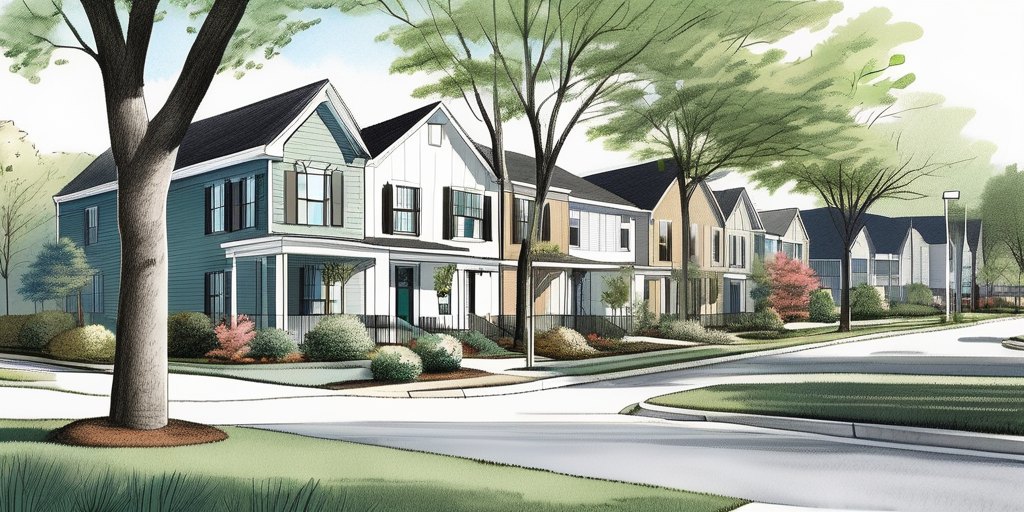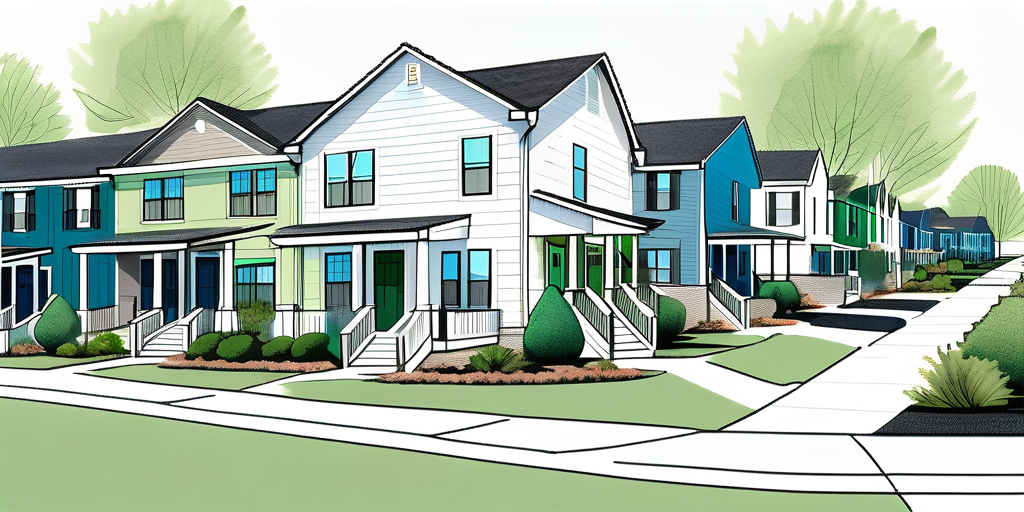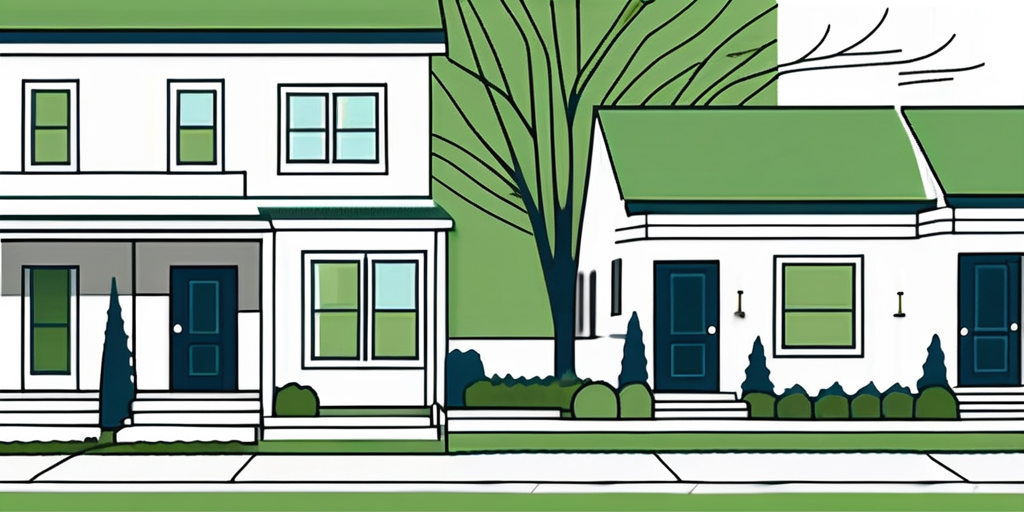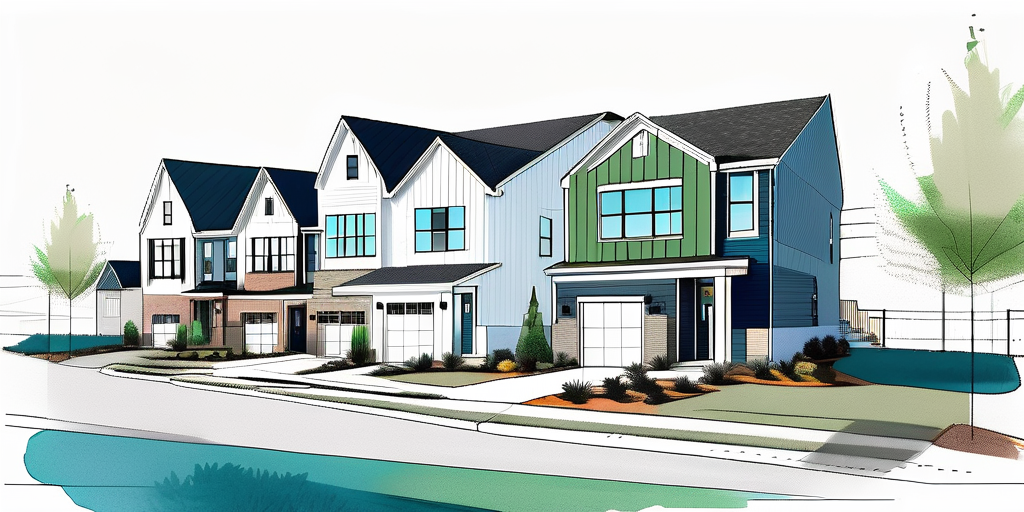
When people talk about a POA, they’re referring to a Property Owners Association. Essentially, it’s an organization that manages how a group of homeowners interacts with and maintains property in a community. Think of it as the governing body that enforces community rules, often enhancing the neighborhood's aesthetics and property values.

In Tennessee National Townhomes, a POA can have a tremendous impact, creating guidelines for things like landscaping, architectural designs, and even noise regulations. New residents should know that being part of a POA means adherence to these prescribed guidelines, which helps cultivate a cohesive community spirit. This structure not only fosters a sense of belonging but also encourages residents to take pride in their surroundings, knowing that their contributions are part of a larger vision for the community.
Additionally, the POA often organizes community events and activities, which can serve as a great way for residents to meet one another and build lasting relationships. From seasonal gatherings to neighborhood clean-up days, these initiatives can significantly enhance the living experience in Tennessee National Townhomes, making it more than just a place to live, but a community to thrive in.
The importance of a POA in property management can’t be overstated. It ensures that there is an organized approach to maintaining communal areas, addressing security issues, and providing a platform for residents to voice their concerns or suggestions.
Moreover, having a dedicated body that oversees property management allows individual homeowners to focus more on their homes and less on the nitty-gritty of community upkeep. With a functioning POA, you can enjoy common amenities—like pools or parks—and feel confident knowing someone is making sure they are well-kept. This management also extends to financial responsibilities, as the POA typically collects dues that fund maintenance, repairs, and improvements, ensuring that the community remains attractive and functional.
Furthermore, the POA plays a crucial role in conflict resolution among residents. By having established guidelines and a structured approach to addressing disputes, the POA can mediate issues before they escalate, promoting harmony within the community. This proactive stance not only helps maintain peace but also reinforces the importance of communication and cooperation among neighbors, which are vital components of a thriving residential environment.
Understanding the legal framework that governs POAs is vital for all current and prospective homeowners. In Tennessee, there are state laws that establish how a POA must operate, including how they collect dues, handle disputes, and enforce the rules they set.
Most importantly, there are statutes that protect both property owners and the association. Familiarizing yourself with these laws can make a big difference when it comes to your rights as a homeowner and the responsibilities of your POA. For instance, the Tennessee Nonprofit Corporation Act provides guidelines on how associations should be structured and operated, ensuring transparency and accountability. This act also outlines the procedures for holding meetings and voting, which is crucial for maintaining an active and engaged community.
Every homeowner has rights and responsibilities under their POA guidelines. On one hand, homeowners have the right to participate in meetings, vote on rules, and access association documents. This democratic aspect allows residents to have a say in how their community operates.
On the flip side, it’s essential to remember that residents also have responsibilities, such as paying dues on time and adhering to community rules. Understanding this balance is key to a harmonious community experience. Additionally, homeowners should be aware that failure to fulfill these responsibilities can lead to consequences, including fines or even legal action. It’s beneficial for residents to stay informed about the specific rules and regulations of their association, as these can vary widely from one POA to another. Engaging in open communication with board members can also foster a sense of community and help address any concerns or misunderstandings that may arise.
One of the major benefits of being part of a POA is the financial stability it provides. Because the association collects dues from all homeowners, it's able to pool resources for the maintenance and upgrading of common areas. This collective financial effort means that homeowners can benefit from amenities and upkeep without having to shoulder the entire financial load themselves.
Additionally, properties in well-maintained communities often see an increase in market value, so the fees paid to the POA may ultimately pay off when it's time to sell your home. The financial contributions also allow the POA to invest in long-term projects, such as enhancing security measures or implementing energy-efficient solutions that can reduce overall costs for residents in the future. These investments not only improve the quality of life for current residents but also make the community more attractive to prospective buyers.
Another significant advantage is property maintenance. The POA is responsible for the upkeep of any communal areas, which can include gardens, swimming pools, and even roads. This means less work on your end as a resident—no need to worry about mowing lawns in common areas or repairing damaged sidewalks.
Furthermore, a POA ensures that maintenance schedules are followed, which fosters a pleasant living environment and makes it more appealing for potential buyers when homes go on the market. Regular maintenance not only preserves the aesthetic appeal of the community but also prevents small issues from escalating into costly repairs. For instance, timely landscaping can prevent overgrowth that might attract pests, while routine inspections of shared facilities can ensure they remain safe and functional for all residents. This proactive approach to property care enhances the overall quality of life and encourages a sense of pride among homeowners in the community.
Acquiring a POA for Tennessee National Townhomes typically follows a structured process. First, prospective homeowners should familiarize themselves with the community's governing documents, which outline the rules and regulations of the POA. These documents often include the bylaws, covenants, and restrictions that govern property use, maintenance standards, and community aesthetics, ensuring that all residents maintain a harmonious living environment.

Next, it often requires a period of community meetings where potential homeowners are encouraged to engage with current residents and board members. This is a crucial time for asking questions and determining if the community aligns with your lifestyle. Attending these meetings not only provides insight into the community's culture but also allows you to gauge the level of involvement and responsiveness of the board, which can significantly impact your living experience.
Once you've decided to pursue membership in a POA, certain documentation will be necessary. This typically includes completion of an application form, submission of identification documents, and possibly financial records to ensure the association that you can fulfill your financial obligations. Additionally, some associations may require proof of homeowners insurance, which protects both you and the community from potential liabilities.
It's wise to keep a checklist of these materials to make the process smoother and quicker. Engaging with the POA board for guidance in this area can also help you navigate the process effectively. Furthermore, understanding the fee structure associated with the POA is essential, as this can include regular dues, special assessments for community projects, and any fines for non-compliance with community standards. Being well-informed about these aspects can help you budget effectively and avoid any surprises down the line.
There are many myths surrounding POAs that could deter folks from considering a home in a community like Tennessee National Townhomes. One of the most common misconceptions is that POAs exist solely to regulate and punish homeowners. In reality, they were created to enhance the community experience and keep property values stable. The rules and guidelines set forth by the POA are often designed to ensure that the neighborhood maintains a cohesive aesthetic and that all residents can enjoy shared amenities without disruption.
Another myth is that joining a POA means relinquishing control over your property. While there are rules, homeowners still have plenty of autonomy within their own private spaces! For example, many communities allow for personal landscaping choices, exterior paint colors, and even the ability to customize outdoor spaces, as long as they adhere to the established guidelines. This balance between community standards and individual expression is what makes living in a POA appealing to many.
It’s essential to sift through the facts and fiction regarding a POA. For instance, many believe that all POAs are financially burdensome. This isn’t necessarily true, as the dues contribute to community maintenance and enhancements, ultimately benefiting homeowners in the long term. These funds often cover landscaping, snow removal, and upkeep of shared facilities like pools and clubhouses, which can significantly enhance the quality of life for residents. Moreover, a well-maintained community can lead to increased property values, making the investment worthwhile.
Being an informed resident can go a long way. Engaging in community meetings and reading the governing documents will help you discern fact from fiction regarding your role within the POA. Additionally, many POAs offer resources such as newsletters or online portals where homeowners can stay updated on community events, maintenance schedules, and even opportunities for involvement in decision-making processes. This transparency fosters a sense of community and encourages residents to take an active role in shaping their living environment, ultimately dispelling the notion that POAs are merely authoritative bodies.
Looking toward the future, the landscape of POAs is evolving. Homeowners are increasingly advocating for more transparency and engagement in governance, leading to more varied roles within POAs, including newer tech methods for communication and meetings.

Additionally, as community life evolves, there may be an uptick in POAs focusing on sustainability practices and embracing technology to enhance how they operate. Whether through eco-friendly initiatives or utilizing online portals for meeting management, things are bound to change! For instance, many POAs are beginning to implement green waste management systems and community gardens, encouraging residents to participate in sustainable practices that benefit not only their immediate environment but also the broader ecosystem. This shift towards sustainability can foster a sense of community pride and responsibility, as residents work together towards common goals.
Changing laws will undoubtedly impact the future of POAs. As state regulations evolve, POAs may need to adapt more flexible governing structures to comply with new requirements. This could mean more homeowner involvement in rule-making and increased accountability.
It's essential for residents to stay engaged and informed, as active participation in the POA can lead to a healthier, more proactive community. The introduction of new laws may also encourage POAs to adopt more inclusive practices, ensuring that all voices are heard, particularly those of younger residents who may bring fresh perspectives and innovative ideas to the table. Furthermore, as legal frameworks around property management continue to evolve, POAs might explore partnerships with local government agencies to better serve their communities, thereby enhancing the overall quality of life for all residents. The future looks bright for POAs that can balance tradition with modern needs and expectations!
In conclusion, understanding the ins and outs of a Property Owners Association in Tennessee National Townhomes can enhance your living experience significantly. From financial benefits to communal support, being part of a well-run POA can transform not just your home but your entire neighborhood.